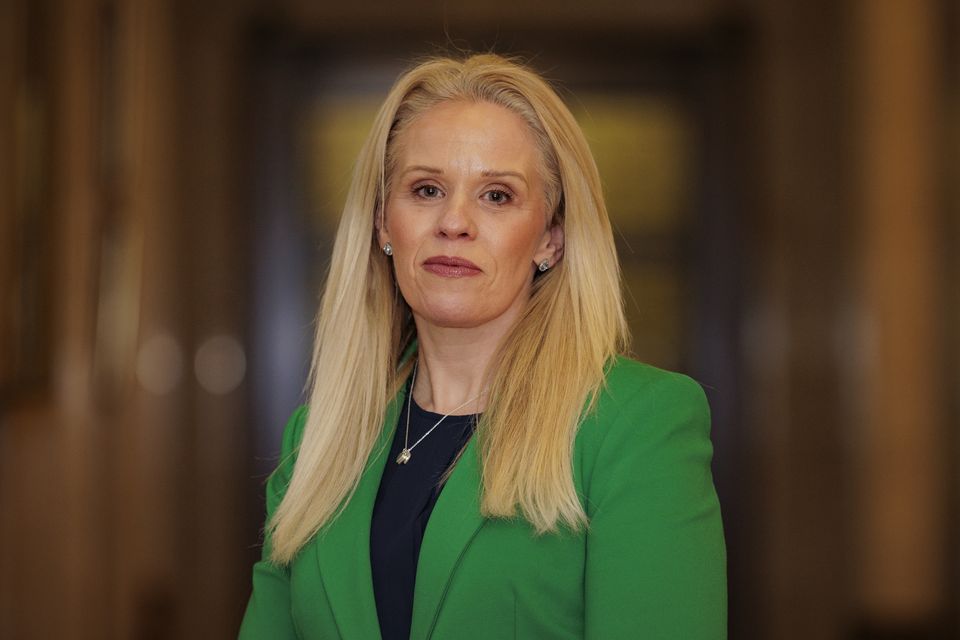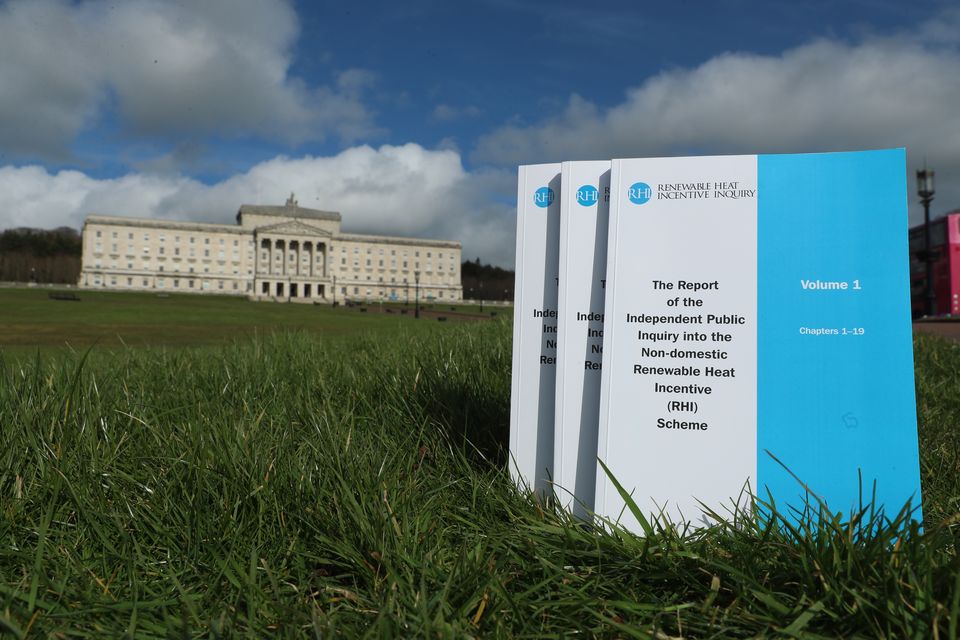It is unlikely that all the recommendations of the Renewable Heat Incentive (RHI) Inquiry will be fully implemented, an Audit Office report has found.
Northern Ireland’s auditor general Dorinnia Carville described the lack of progress four years after the inquiry reported as “concerning”.
She also highlighted that in some areas examined by the inquiry, such as record keeping, the performance of Stormont departments has actually got worse.
The RHI scheme, set up in Northern Ireland in 2012, incentivised businesses and farmers to switch to the eco-friendly boilers by paying them a subsidy for the wood pellet fuel needed to run them.
Dorinnia Carville, comptroller and auditor general for Northern Ireland (Liam McBurney/PA)
But mistakes in its designs saw the subsidy rates set higher than the actual cost of the wood pellets, with applicants finding themselves able to burn to earn.
With Stormont facing an overspend bill of hundreds of millions of pounds, cost-control steps were taken in 2019.
In 2020, a public inquiry identified a multiplicity of mistakes in the running of the scheme.
The inquiry, chaired by retired judge Sir Patrick Coghlin, produced a 656-page, three-volume report containing 319 findings and making a number of recommendations.
The Renewable Heat Incentive (RHI) public inquiry released its report in 2020 (Liam McBurney/PA)
Ms Carville’s report found that, out of 42 recommendations, a total of 26 have been implemented, with a further 11 likely to be implemented in the future.
It said that, while departments have “undoubtedly made progress” since a previous audit report, the overall pace of implementation has been slow.
It said 16 recommendation have still not been fully implemented.
Furthermore, it said that planned actions by departments in relation to five recommendations are unlikely to fully address the inquiry’s concerns.
In the case of two of these, the status has regressed since 2022.
Particular concerns were raised with regards to records management, with the overall position of the ‘record keeping’ theme having regressed since 2022, the auditor said.
Additionally, the report notes difficulties encountered by the auditor in securing timely access to adequate records as part of its review.
It said that despite the Department of Finance having published a progress report in March 2024, a complete and readily accessible audit trail of the relevant documentation to support this assessment was “largely absent” when requested.
Ms Carville said: “Considering the seriousness of the RHI Inquiry’s findings and the level of public interest, the lack of progress is concerning.
“The inquiry’s findings demonstrated the significant learning and improvement that was needed from the NI Civil Service to rebuild public confidence.
“Four years on, a significant number of recommendations have yet to be fully implemented and, in our assessment, several are unlikely to be properly addressed by the actions currently planned.”
“Appropriate oversight will be vital going forward.”
She added: “An Executive sub-committee, previously established for this purpose, last met in December 2020 and no equivalent sub-committee has been constituted since the Executive was restored earlier this year.
“As a result, this report calls on the Department of Finance to explore suitable oversight mechanisms for the remaining recommendations – both those of the inquiry and those in today’s report.”
A spokesperson for the Department of Finance said: “Considerable work has been done on reforms recommended by the Renewable Heat Incentive Inquiry.
“This is reflected in 26 recommendations having been implemented with a further 11 to be implemented in the near future.
“The Department of Finance has published an update of the implementation of the recommendations of the RHI Inquiry on the departmental website.
“This progress was made within the context of a global pandemic, absence of functioning institutions and extreme budget pressures.”
Matthew O’Toole said the report painted a bleak picture (Liam McBurney/PA)
The SDLP’s Stormont leader Matthew O’Toole said the report paints a “bleak picture” for Stormont.
He said: “Particularly shocking is the fact that an Executive sub-committee set up to implement the review’s findings has not met in four years.
“The fiasco over record keeping and Covid seems to point to a Stormont regime at both political and official level that is simply unwilling to change.
“The DUP may have been the party most culpable for the RHI fiasco in the first place, but this report casts Sinn Fein in a damning light.
“They still maintain that they were right to collapse government over RHI in 2017, a decision which led to three years of political chaos.
“But since 2020, successive finance ministers in charge of pushing through post-RHI reforms have been Sinn Fein ones – and this report illustrates that they simply haven’t bothered.”
He added: “We are now nearly half a decade into the new decade that was much heralded in 2020, but neither the Executive parties nor the Civil Service leadership appear to be serious about a new approach.”


